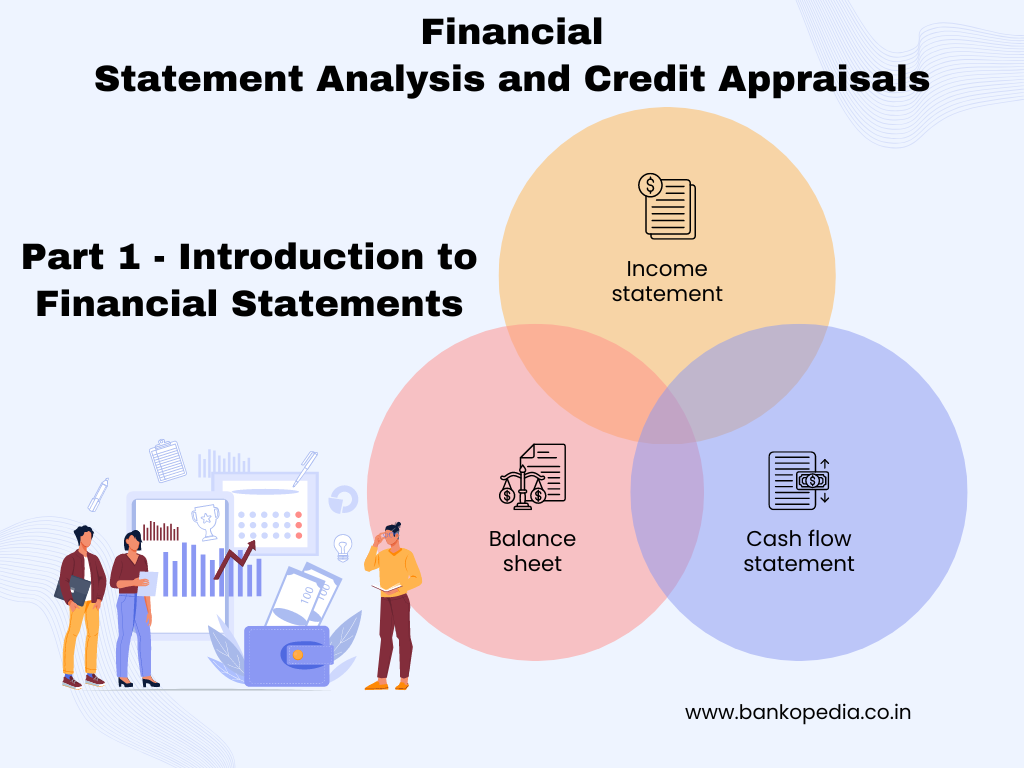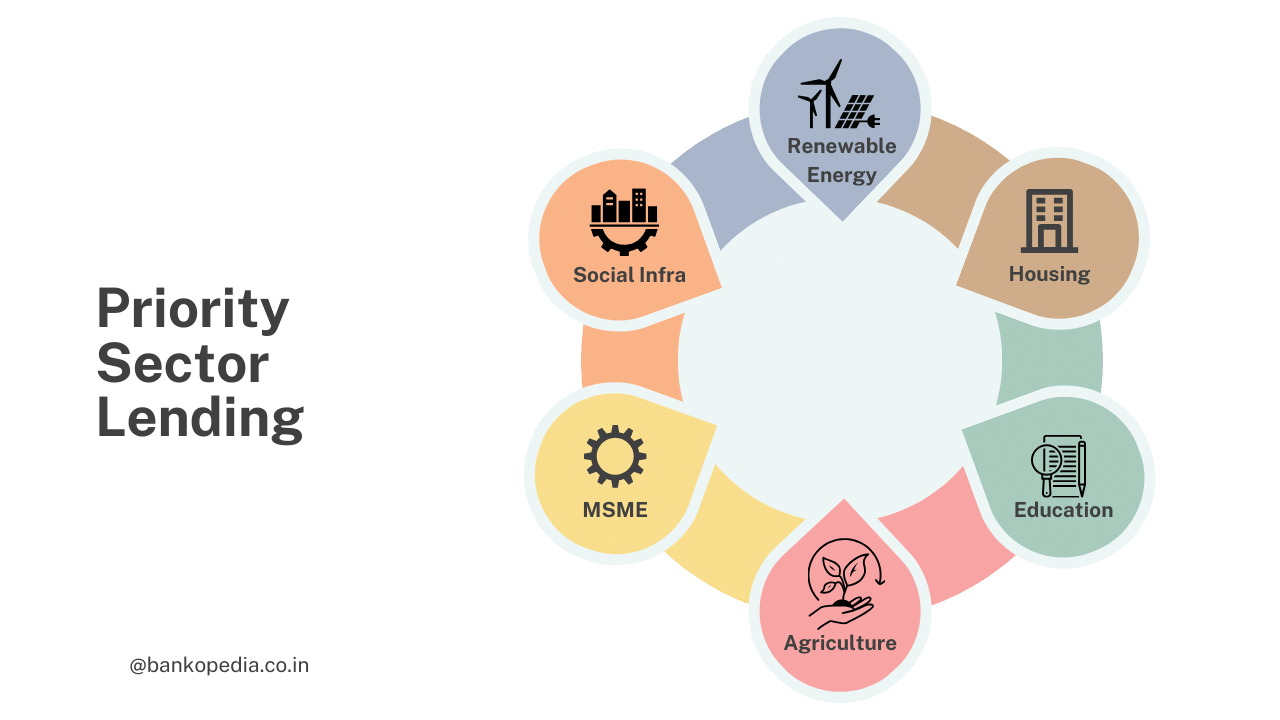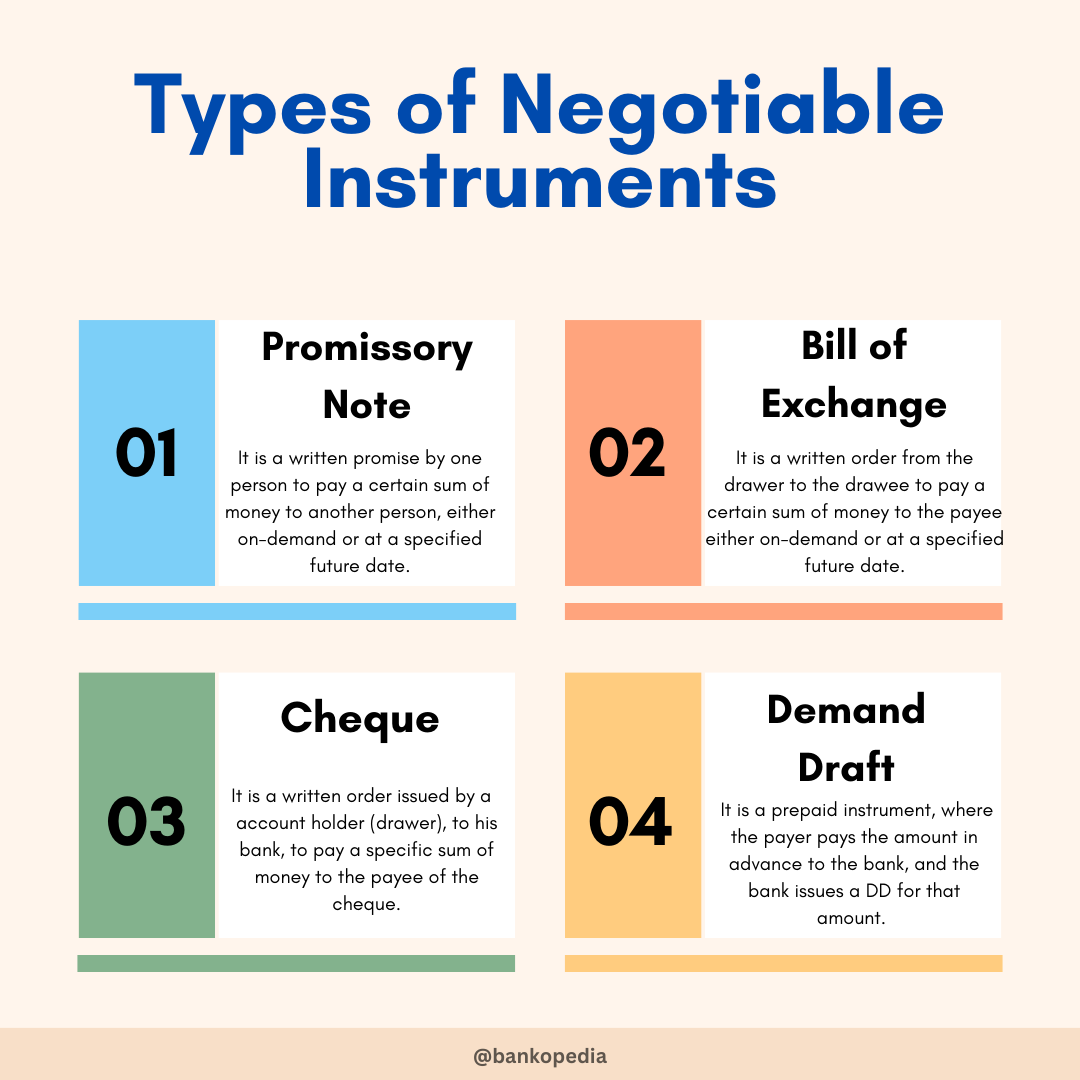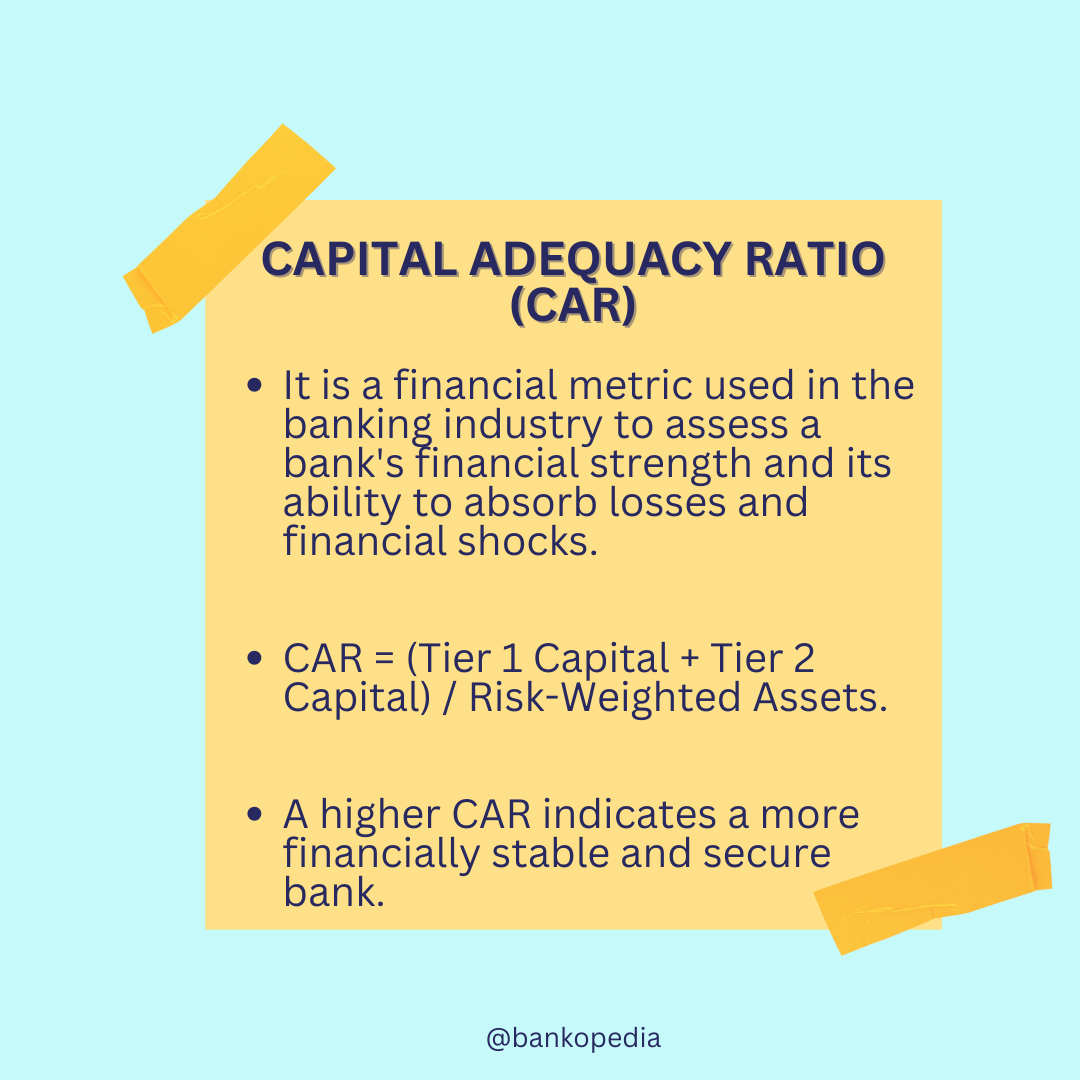Welcome to Daily Banking Digest, your premier source for the latest news and insights on March 07, 2024, focusing on banking, the economy, and finance. Our platform offers a comprehensive overview of the day’s most critical financial stories, market trends, and economic developments. Whether you’re a professional in the financial sector, an investor monitoring market movement, or someone interested in staying informed about the economic landscape, Daily Banking Digest provides reliable, up-to-date information.
Join our Telegram Channel for Daily PDF in your Inbox – Click Here
Table of Contents
Let customers decide: RBI tells card issuers on choice of card network affiliation.
The Reserve Bank of India (RBI) has mandated banks and non-banks to allow customers to choose the authorized card network for their credit cards. This move aims to increase competition among card networks and provide customers with more options and potentially lower fees.
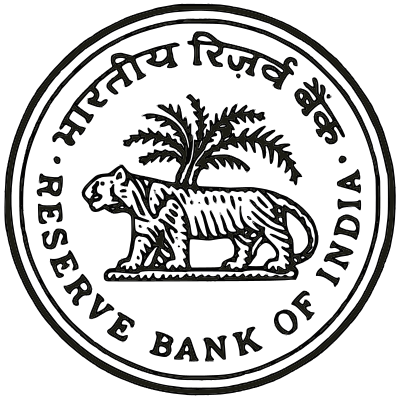
Key Points
Choice of Card Network
- Customers can now choose the card network for their credit cards.
- Card issuers must provide this option at the time of card issuance or renewal.
- This requirement does not apply to issuers with an active card base below 10 lakh or those issuing cards on their own authorized network.
Competition among Card Networks
- Multiple card networks will compete for customers, potentially leading to lower merchant discount rates (MDR).
- Networks may offer discounts and cashbacks to attract customers.
Card Network Functions
- Card networks facilitate the issuance of card-based products and serve as merchant payment systems.
- India has five authorized card networks: American Express, Diners Club, MasterCard, RuPay, and Visa.
Customer Considerations
- Annual charges, renewal fees, and conditions vary across networks.
- RuPay cards may be easier to obtain than cards from global networks.
- Global networks offer advantages for foreign travel and international remittances.
Credit Card Base
- Banks had an outstanding credit card base of 9.95 crore as of January 2024.
- Six banks have card bases exceeding 50 lakh, with HDFC Bank having the largest base.
India explores lithium in Argentina to boost green energy
India’s Mines Ministry is partnering with local companies in Argentina to explore and develop lithium reserves. The state-owned KABIL has acquired five lithium brine blocks in Catamarca, Argentina, and plans to invest approximately ₹200 crore over five years. The partnership is crucial as Argentina’s laws require local involvement in exploration and development activities.
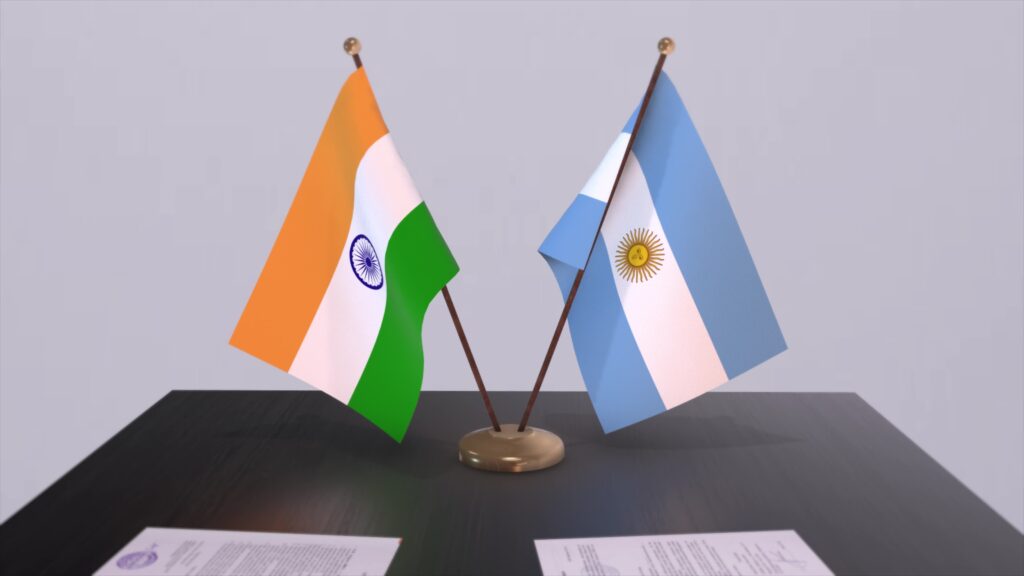
Key Points
Acquisition of Lithium Blocks – KABIL acquired five lithium brine blocks in Argentina in January 2024. – The blocks cover an area of 15,703 hectares in the Catamarca district.
Local Partnership – Argentina’s laws mandate the involvement of local partners in exploration and development. – KABIL is in the process of on-boarding a local exploration agency to obtain necessary clearances and start drilling activities.
Exploration and Development – KABIL has obtained exploration and exclusivity rights for the five blocks. – The agreement allows for evaluation, prospecting, and exploration of lithium reserves. – Upon discovery of lithium, KABIL has the right for commercial production.
Lithium Importance – Lithium is crucial for India’s transition to green energy and reduction in carbon footprint. – It is used in energy storage solutions, batteries, and electric vehicles.
Exploration Timeline – KABIL has a five-year time-frame to start exploration activities. – Failure to meet the deadline will result in hefty fines.
Confirmed Reserves – Studies by the Argentine government and KABIL geologists confirm the presence of lithium reserves in the acquired blocks.
PM Modi unveils India’s first underwater metro in Kolkata
Prime Minister Narendra Modi inaugurated several metro projects across India, including India’s first underwater metro line in Kolkata. The Howrah Maidan-Esplanade section of the Kolkata Metro’s East-West Corridor features a 520-meter under-river tunnel, making it the deepest metro station in the country. Modi also inaugurated sections of the New Garia-Aiport line, Joka-Esplanade line, Delhi-Meerut RRTS Corridor, Pune Metro, Kochi Metro, and Agra Metro. These projects aim to reduce traffic congestion and provide seamless connectivity.

Key Points:
- Kolkata Metro’s Underwater Line:
- India’s first underwater metro line, connecting Howrah Maidan and Esplanade.
- 520-meter under-river tunnel, taking 45 seconds to cross.
- Deepest metro station in India at Howrah.
- Other Metro Projects Inaugurated:
- Kavi Subhash-Hemanta Mukhopadhyay section of New Garia-Aiport line, Kolkata.
- Taratala-Majerhat section of Joka-Esplanade line, Kolkata.
- Duhai-Modinagar (North) section of Delhi-Meerut RRTS Corridor.
- Ruby Hall Clinic-Ramwadi stretch of Pune Metro.
- SN Junction to Tripunithura section of Kochi Metro.
- Taj East Gate-Mankameshwar section of Agra Metro.
- Foundation Stone Laid:
- Extension of Pune Metro between Pimpri Chinchwad and Nigdi.
- Benefits of Metro Projects:
- Reduced traffic congestion.
- Seamless, easy, and comfortable connectivity.
- Enhanced connectivity to historical tourist places (Agra Metro).
- Boosted economic activity in the NCR (RRTS Corridor).
India has the highest recycling rates globally for copper, reveals ICA India ‘stock and flow model’.
India has achieved one of the highest copper recycling rates globally, ranging from 95.1% to 99.4%. This is attributed to efficient collection, recognition of copper’s value, and minimal loss during remelting. The International Copper Association India (ICA India) has developed a “copper stock and flow model” to provide a comprehensive understanding of India’s copper landscape. The model reveals that secondary copper meets over 50% of India’s copper demand, highlighting the importance of recycling in the supply chain.
Key Points
High Recycling Rate – India has one of the highest copper recycling rates globally, ranging from 95.1% to 99.4%.
Copper Stock and Flow Model – ICA India has launched a “copper stock and flow model” in collaboration with the Fraunhofer Institute, Germany. – The model provides a scientific estimate of copper dynamics, including mining, production, scrap generation, and recycling.
Secondary Copper Demand – Secondary copper, derived from recycling, currently fulfills over 50% of India’s copper needs.
Policy Implications – The model enhances the accuracy of copper recycling data and provides insights for policymakers. – It enables the development of data-driven copper resource strategies.
Active Copper Stock – India has an active copper stock of 15 million tonnes across various applications. – 1.1 million tonnes were added to this stock in 2020-21.
End-of-Life Scrap Generation – The model estimates that 380,000 tonnes of copper from end-of-life products became available for recycling in 2020-21.
Strategic Focus – Copper is recognized as a critical mineral in India’s focus on sustainable exploration, processing, and recycling.
RBI approves appointment of BK Divakara as Whole-Time Director of CSB Bank
The Reserve Bank of India (RBI) has approved the appointment of BK Divakara as a Whole-Time Director (Executive Director) of CSB Bank for a three-year term. The appointment is subject to shareholder approval. Divakara has held various leadership positions within CSB Bank and previously served as Executive Director at Central Bank of India.

Key Points:
Appointment: – RBI approves BK Divakara’s appointment as Whole-Time Director of CSB Bank for three years. – Appointment subject to shareholder approval.
Background: – Divakara has been Head-Strategy & Corporate Legal at CSB Bank since June 2023. – Previously held the position of CFO at CSB Bank from February 2020 to June 2023. – Served as Executive Director at Central Bank of India from January 2014 to December 2018.
Qualifications: – Associate Member of the Institute of Chartered Accountants of India, Institute of Company Secretaries of India, and Institute of Cost and Management Accounts of India.
Market Reaction: – CSB Bank’s share price rose by 5.85% on NSE following the announcement.
India may give quota-based duty concession on gold imports from Switzerland under EFTA trade pact.
India is considering offering quota-based duty concessions on gold imports from Switzerland as part of a proposed free trade agreement (FTA) with the European Free Trade Association (EFTA). India has also sought an investment commitment of USD 100 billion from EFTA member countries over the next 15 years. The FTA aims to boost economic ties between India and EFTA, which includes Iceland, Liechtenstein, Norway, and Switzerland.
Key Points:
Duty Concession on Gold Imports: – India may grant quota-based duty concessions on gold imports from Switzerland under the proposed FTA. – Gold accounts for 80% of India’s imports from Switzerland. – India has previously extended duty concessions on gold imports under a trade pact with the UAE.
Investment Commitment: – India has sought an investment commitment of USD 50 billion during the first ten years and another USD 50 billion over the next five years from EFTA member countries. – The investment commitment aims to balance Switzerland’s decision to remove customs duties on most of its industrial goods.
Swiss Manufacturing in India: – Indian negotiators are exploring ways for Swiss companies to manufacture in India to boost the Make in India program and domestic manufacturing capacity.
Switzerland’s Gold Imports: – Switzerland is the largest source of gold imports for India, accounting for 41% of imports during April-October 2023. – Switzerland primarily refines imported gold.
Trade Deficit with Switzerland: – India has a substantial trade deficit with Switzerland, with imports far exceeding exports. – In 2022-23, India’s imports from Switzerland stood at USD 15.79 billion, while exports were only USD 1.34 billion.
EFTA Free Trade Agreements: – EFTA has 29 free trade agreements with 40 partner countries. – Under free trade pacts, trading partners reduce or eliminate customs duties and ease norms to promote trade in goods, services, and investments.
EFTA and India’s Trade: – India’s exports to EFTA countries increased in 2022-23 compared to 2021-22. – However, imports from EFTA countries decreased during the same period. – The trade gap is in favor of the EFTA group.
Greece’s Eurobank eyes presence in India, may set up office in Mumbai.
Eurobank, a Greek bank with a strong corporate client base in Europe, plans to establish a representative office in Mumbai, India. The bank aims to facilitate trade between India and Europe and serve Indian businesses seeking a commercial presence in the EU market. Eurobank’s presence in India will initially focus on marketing, client relations, and non-transactional operations.
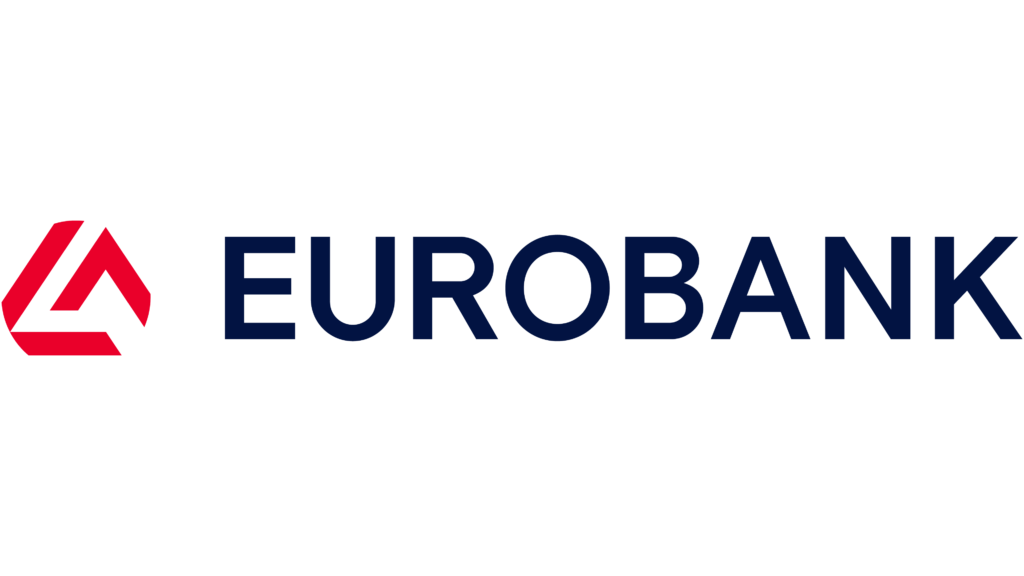
Key Points:
1. Eurobank’s Expansion to India: – Eurobank plans to open a representative office in Mumbai to establish a presence in India. – The bank aims to serve Indian businesses seeking a commercial presence in Europe.
2. Trade Facilitation: – Eurobank believes that trade relations between Europe and India are poised for growth. – The bank aims to become a key facilitator for Indian businesses looking to establish a presence in the EU market.
3. Unified European Market Opportunity: – Eurobank sees the unified European market as a significant opportunity for Indian businesses. – The bank believes that Greece and Cyprus, its strongholds, can provide a foothold for Indian businesses in the EU.
4. Non-Transactional Operations: – Eurobank’s representative office in India will initially focus on marketing, client relations, and other non-transactional operations. – The bank will not offer banking products to Indian customers at this stage.
5. India’s Importance for Eurobank: – Eurobank views India as important for its business due to the diversification of production hubs and the potential for increased trade between India and Europe. – The bank believes that Indian businesses will increasingly look to Greece and Cyprus for a foothold in the EU market post-Brexit.
6. Major Shareholder: – Eurobank’s major shareholder is Fairfax Financial, an insurance and investment giant founded by Indian-Canadian billionaire Prem Watsa.
India to become upper middle-income nation by 2031, to grow at 6.8%: CRISIL.
Crisil Ratings predicts India’s GDP growth to be 6.8% in the next fiscal year. The report suggests that India will become an upper middle-income nation by 2031, with its economy doubling to USD 7 trillion due to domestic structural reforms and cyclical factors.

Key Points
- GDP Growth: India’s GDP growth is projected to moderate from 7.6% this fiscal year to 6.8% in fiscal 2025.
- Economic Expansion: The Indian economy is expected to cross the USD 5 trillion mark and reach closer to USD 7 trillion over the next seven fiscals (2025-2031).
- Global Ranking: With an average expansion of 6.7%, India is projected to become the world’s third-largest economy by 2031.
- Income Status: India will become an upper middle-income country by fiscal 2031, with per-capita income rising to USD 4,500.
- Manufacturing Growth: India’s manufacturing sector is poised for growth due to various factors like supply-chain diversification and infrastructure investment.
- Challenges: Near- and medium-term challenges to growth include geopolitics, slowing potential growth, climate change, and technological disruptions.
- Economic Drivers: Both manufacturing and services sectors will contribute significantly to India’s growth trajectory through fiscal 2031.
RBI found deficiency in 67% of IIFL gold loan accounts put up for auction.
RBI’s audit of IIFL Finance revealed deviations in gold loan-to-value ratios in 67% of accounts, leading to a ban on fresh gold loan extensions. The audit also found irregularities in auction procedures, prompting IIFL to implement stricter quality assessments and transparency measures.
Key Points:
Gold Loan-to-Value Ratio Deviation: – 67% of IIFL’s gold loan accounts exhibited deviations in loan-to-value ratios.
Auction Irregularities: – 55,000 of 82,000 defaulted gold loan accounts had deviations in auction procedures.
Co-Lending Partners: – IIFL claims co-lending partners independently assess gold purity and weight.
E-Auction Platform: – IIFL uses Auction Tiger’s e-auction platform for gold jewelry auctions.
Taluka-Level Auctions: – RBI has directed IIFL to conduct all auctions at the taluka level.
Lack of Transparency: – IIFL will provide a breakdown of charges levied during auction notices and auctions.
Cash Disbursement Cap: – RBI has capped cash disbursements to ₹20,000.
IIFL’s Response: – IIFL has implemented all RBI observations except the cash disbursement cap. – IIFL plans to request a special audit from RBI.
Analyst’s Perspective: – The ban on new gold loan disbursements may take six months to lift. – Existing gold loan portfolio will continue to generate interest income. – Profitability impact depends on the duration of the ban.
Farmers’ enrolment in Fasal Bima scheme rises 27% in 2023-24.
The Pradhan Mantri Fasal Bima Yojana (PMFBY) has witnessed a 27% increase in farmer enrollment, with 42% of non-loanee farmers participating in 2023-24. The scheme has enrolled 56.80 crore farmers and disbursed over Rs 1,55,977 crore in claims. The government has introduced alternative risk models and technology-based yield estimation to improve the scheme’s efficiency.
Key Points:
Enrollment: – 27% increase in farmer enrollment under PMFBY in 2023-24. – 42% of non-loanee farmers enrolled in the scheme.
Claims: – Over 23.22 crore farmer applicants have received claims under PMFBY. – Rs 1,55,977 crore disbursed in claims to farmers.
Premium: – Farmers paid Rs 31,139 crore as their share of premium. – No mention of total premium collected by insurers.
Scheme Features: – Demand-driven and voluntary for states and farmers. – Farmers pay a nominal premium (2% for kharif, 1.5% for rabi, 5% for cash crops). – Remaining premium shared 50:50 by Centre and States.
Improvements: – Scheme made voluntary for all farmers. – Compulsory use of 0.5% of gross premium for IEC activities. – Change in financial sharing pattern, with states given freedom to choose risk cover.
Alternative Risk Models: – Profit and Loss Sharing – Cup and Cap (60-130) – Cup and Cap (80-110)
Technology: – Yield Estimation System based on Technology (YES-TECH) launched to minimize delay and increase data authenticity.
India commits to global best practices for accounting and auditing, says MoS Corporate Affairs Rao Inderjit Singh.
The Indian government emphasizes transparent financial reporting aligned with global standards to boost investor confidence and economic growth. The National Financial Reporting Authority (NFRA) held its first international conference to discuss best practices in accounting and auditing. The government aims to foster a trustworthy ecosystem for investors and creditors, with the corporate sector playing a crucial role in India’s development aspirations.
Key Points:
1. Commitment to Transparent Financial Reporting: – The government is dedicated to promoting transparent financial reporting practices. – Transparent reporting enhances investor confidence and facilitates capital flow into the Indian economy.
2. Global Best Practices in Accounting and Auditing: – India’s adoption of global best practices is not just for compliance but a strategic imperative. – The government recognizes the importance of aligning with international standards.
3. Role of the Corporate Sector: – The corporate sector is vital in achieving India’s goal of becoming a developed nation by 2047. – A trusting ecosystem for investors and creditors is essential for economic growth.
4. NFRA’s Focus on Auditor Responsibilities: – NFRA and the Ministry of Corporate Affairs (MCA) are concerned about auditor responsibilities regarding fraud detection. – They are collaborating with international organizations to strengthen this area.
5. Development of Homegrown Audit Firms: – NFRA aims to work with MCA to create frameworks that support the development of Indian audit firms comparable to the Big 4 globally.
Consumer body warns celebrities and influencers against promoting betting, gambling.
The Central Consumer Protection Authority (CCPA) has issued an advisory warning celebrities and social media influencers against endorsing or promoting illegal betting and gambling activities. The CCPA emphasizes that such endorsements are unlawful and will result in strict action against violators.
Key Points:
1. CCPA Advisory: – CCPA has issued an advisory prohibiting celebrities and influencers from endorsing illegal betting and gambling activities.
2. Endorsements by Celebrities: – Celebrity endorsements create the impression that online gambling and betting are acceptable.
3. Legal Status of Betting and Gambling: – Betting and gambling are prohibited under the Public Gaming Act 1867 and are illegal in most regions of India.
4. Promotion of Illegal Activities: – Advertising or promoting online betting platforms and apps promotes an activity that is predominantly banned.
5. Financial and Socio-Economic Implications: – Endorsement of betting and gambling activities has significant financial and socio-economic implications, especially for the youth.
6. Guidelines for Prevention of Misleading Advertisements: – The Guidelines for Prevention of Misleading Advertisements and Endorsements for Misleading Advertisements, 2022, prohibit the advertisement of products or services prohibited under any prevailing law.
7. Enforcement Measures: – The CCPA will initiate stringent measures against violators, including manufacturers, advertisers, publishers, intermediaries, social media platforms, endorsers, and other relevant stakeholders.
Jefferies downgrades IIFL Finance, expects RoE hit of 460-480 bps.
Jefferies has downgraded IIFL Finance due to RBI’s ban on incremental gold loan sanctions. The ban is expected to impact earnings, co-lending income, and potentially increase the cost of funds. Jefferies estimates a 26-27% reduction in EPS and a 460-480 bps decline in ROE over the next two fiscal years.
Key Points
RBI Ban – RBI has banned IIFL Finance from issuing new gold loans due to deviations in gold purity certification, LTV ratio breaches, and non-compliance with auction processes.
Impact on Earnings – Jefferies estimates a 6% decline in profit for FY26E due to the ban. – The unwinding of the gold loan book (32% of AUM) will significantly impact earnings.
Co-Lending Income – The ban will also affect co-lending income, as gold loans account for 63% of co-lending AUM. – Spreads on co-lending gold loans are higher than those for home loans.
Margins – The reduction in the share of higher-yielding gold loans will weigh on margins.
EPS and ROE – Jefferies forecasts a muted EPS CAGR of 5% and ROE of 15-15.8% over FY24-26E.
Motilal Oswal Securities – Motilal Oswal Securities also expects the ban to dampen growth and profitability. – They estimate a 2% reduction in FY24 EPS, 14% in FY25, and 15% in FY26. – However, they maintain a ‘buy’ rating on the stock, citing risks such as a sharp decline in the gold loan portfolio and reputational damage.
Sebi likely to issue order on JM Financial
The Securities and Exchange Board of India (Sebi) is expected to issue an order against JM Financial for allegedly inflating IPO subscription numbers. The Reserve Bank of India (RBI) has already banned JM Financial Products from offering fresh loans against IPOs. Sebi has identified three merchant bankers, including JM Financial, involved in this malpractice.
Key Points:
Sebi’s Investigation: – Sebi has observed malpractices in primary market activities related to IPO subscription numbers. – Three merchant bankers, including JM Financial, have been found to inflate application numbers during IPOs. – Sebi will soon issue an order in this regard.
RBI’s Action: – RBI banned JM Financial Products from offering fresh loans against IPOs. – The action was taken after Sebi shared relevant information with the banking regulator.
Sebi’s Concerns: – Sebi chief Madhabi Puri Buch raised concerns about merchant bankers involved in wrongdoings. – She highlighted the use of mule accounts and multiple PAN card details to inflate subscription numbers.
Mule Accounts: – Mule accounts are trading accounts or bank accounts controlled by someone other than the account holder. – They are used to bid in IPOs and get rejected to make subscription numbers appear higher.
India mulls quota-based duty cuts on gold imports to Switzerland under EFTA
India is considering providing quota-based duty concessions on gold imports from Switzerland under the proposed free trade agreement with the European Free Trade Association (EFTA). India has also requested an investment commitment of $50 billion in the first ten years and another $50 billion in the next five years after the agreement’s implementation.
Key Points:
- Quota-Based Duty Concessions: India is considering giving quota-based duty concessions on gold imports from Switzerland.
- Investment Commitment: India has sought an investment commitment of $50 billion in the first ten years and another $50 billion in the next five years after the agreement’s implementation.
- EFTA Members: The EFTA comprises Iceland, Liechtenstein, Norway, and Switzerland.
- Switzerland’s Request: Switzerland has requested duty concessions on inbound shipments of gold, which accounts for about 80% of India’s total imports from Switzerland.
- Importance of Concessions: Quota-based concessions to Switzerland are crucial as India has already extended 1% duty concession to gold importers under tariff rate quota in its trade pact with the UAE.
- Current Gold Import Duties: Gold imports are currently subject to a 12.5% basic customs duty and a 2.5% cess.
- Gold Import Growth: Gold imports grew 30% on-year to about $38 billion in April-January FY24.
Diamond exports set to fall by 25-30% to multi-year low this fiscal
India’s cut and polished diamond (CPD) exports are projected to decline by 25-30% in the current fiscal year, reaching a multi-year low of USD 15-16 billion. This decline is attributed to reduced demand in major markets like the US and China, as well as increased competition from lab-grown diamonds. The outlook for the industry remains negative, with no significant recovery expected in the next fiscal year.
Key Points:
Demand Slump: – Massive demand slump in the US and China, the largest consuming markets. – Decline in CPD demand began in December 2022. – Increased alternative discretionary spending options and growing market for lab-grown diamonds have negatively affected exports.
Export Decline: – Exports fell by 28% on-year to USD 13.04 billion in the first ten months of FY24. – Exports are set to fall by 25-30% in FY24 to USD 15-16 billion.
Price Correction: – Demand-supply imbalance has put pressure on polished diamond pricing. – Price correction of 5-10% for diamonds below 0.3 carats, 20-30% for 0.3-3 carat diamonds, and 10-20% for diamonds above 3 carats.
Industry Outlook: – Outlook for the CPD industry is negative. – No significant recovery expected in FY25.
Other Factors: – High inventory at the start of FY24. – Fall in prices impacted scale and profit margins. – Higher-than-anticipated decline in total operating income, profitability, and gross cash accruals.
Mobile exports to grow to $50-60 billion, says IT Minister Vaishnaw
India’s mobile phone exports are projected to surge from $11 billion to $50-60 billion in the near future, leading to a significant increase in employment in the electronics manufacturing sector. India’s economy is also expected to become the third largest globally by 2027, with a market capitalization of $10 trillion by 2030.
Key Points:
- Mobile Phone Exports:
- Exports to grow from $11 billion to $50-60 billion.
- Employment in Electronics Manufacturing:
- To increase from 10 lakh to 25 lakh.
- India’s Economic Growth:
- Projected to become the third largest economy by 2027.
- Market capitalization expected to reach $10 trillion by 2030.
- Infrastructure Development:
- 5200 kilometers of railway line added in 2022.
- 5500 kilometers of railway lines to be added in 2023.
- Number of airports doubled in the last 10 years.
India allows onion export to Bahrain, Mauritius, Bhutan
The Indian government has authorized the export of onions to Bahrain, Mauritius, and Bhutan through the National Cooperative Exports Limited. The government had previously imposed a ban on onion exports to ensure domestic supply, but it has allowed limited exports to friendly nations. Additionally, the government has amended the procedures for registering yellow pea imports under the Import Monitoring System.
Key Points:
- Onion Exports:
- 3,000 MT to Bahrain
- 1,200 MT to Mauritius
- 550 MT to Bhutan
- Yellow Pea Import Registration:
- Bill of Lading details must be declared in IMS registration
- Multiple Bills of Lading details can be specified under a single registration
- All copies of Bills of Lading must be uploaded during registration
Govt notifies settlement, commitment provisions under competition law
The Indian government and Competition Commission of India (CCI) have notified provisions and regulations for settlements and commitments in competition law cases. These provisions allow companies to offer commitments or settlements for anti-competitive vertical agreements and abuse of dominant position, excluding cartelisation, at various stages of investigation. The aim is to enhance CCI’s regulatory process and facilitate swifter market corrections, particularly in dynamic digital markets.
Key Points:
- Settlement and Commitment Provisions:
- Allow companies to offer commitments or settlements for anti-competitive vertical agreements and abuse of dominant position.
- Excludes cartelisation cases.
- Can be offered at different stages of investigation.
- Notification by Government and CCI:
- Corporate affairs ministry and CCI have issued notifications regarding the provisions and regulations.
- Benefits:
- Enhance CCI’s regulatory process.
- Facilitate swifter market corrections, especially in digital markets.
Nine states get nod for strategic investment plan for MSME units
The Indian government has approved Strategic Investment Plans (SIPs) for nine states, including Rajasthan, West Bengal, and Gujarat, to support micro, small, and medium enterprises (MSMEs). These plans aim to reduce compliance costs and improve access to credit for MSMEs.
Key Points:
SIPs Approved: – Nine states have received approval for their SIPs: Rajasthan, West Bengal, Gujarat, Meghalaya, Chandigarh, Tripura, Nagaland, Uttarakhand, and Himachal Pradesh.
Funding Support: – The Centre has allocated Rs 713 crore for these SIPs under the Raising and Accelerating MSME Performance (RAMP) scheme.
RAMP Scheme: – RAMP is a World Bank-supported scheme that provides funding for SIPs. – It focuses on addressing issues related to MSME financing, marketing, and technology upgrades.
State Participation: – 25 states and union territories have submitted SIPs since the scheme’s launch in 2022. – All states are expected to submit their SIPs within 4-5 months.
SIP Objectives: – SIPs allow states to identify and address challenges faced by MSMEs. – They can include programs for awareness creation, capacity building, or other specific interventions tailored to each state’s needs.
Penalty for unfair trade practices to be linked to global turnover.
The Competition Commission of India (CCI) has implemented new regulations that allow for the imposition of monetary penalties based on a company’s global turnover for anti-competitive conduct. This move aims to enhance the CCI’s ability to curb antitrust activities involving multinational firms, including Big Tech companies. The regulations also introduce commitment and settlement mechanisms to facilitate the resolution of anti-competitive conduct cases.
Key Points:
1. Global Turnover Penalty: – CCI can levy a penalty up to 10% of a company’s global turnover for abuse of dominant position.
2. Penalty Guidelines: – Regulations provide certainty and predictability on potential penalty amounts. – CCI considers aggravating and mitigating circumstances in determining penalties. – Existence of a competition compliance program may be a mitigating factor.
3. Commitment Mechanism: – Companies can propose commitments to address anti-competitive concerns. – Commitment application must be filed within 45 days of receiving a prima facie inquiry order.
4. Settlement Mechanism: – Companies can apply for settlement of regulatory proceedings within 45 days of receiving the CCI director general’s probe report. – CCI retains the power to reject settlement applications.
5. Inquiry Suspension: – Inquiry against companies in commitment and settlement cases is suspended until the CCI makes a final decision on their applications.

